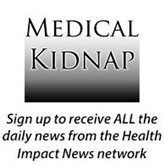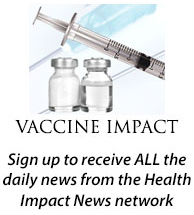
By Dr. Mercola
In 2009 in the U.S. there were nearly 4.6 million drug-related visits to emergency rooms nationwide, with more than half due to adverse reactions to prescription medications – most of which were being taken exactly as prescribed.
What’s more, these types of ER visits jumped by more than half just between 2004 and 2008, stirring health officials to look for ways to stop what has become a near-epidemic that often ends in death. When you consider that 2.7 million of those visits involved prescriptions for largely preventable health issues, you can’t help but wonder if it’s time to seek health care instead of health treatments.
But how do you do that?
Remember Drugs are Toxic and Can Potentially Kill You
From TV commercials to magazine ads to your own doctor, it seems like no matter which way you turn, you’re constantly being told that the only way to take care of your health is to get treated with some medical intervention that mostly involves a pill for just about anything that ails you – and even for what doesn’t ail you YET but might possibly ail you in the future. It’s an insidious onslaught that never quits – and sometimes the message is so sneaky you don’t even realize it’s a sales pitch that comes with a hitch.
For example, Pfizer’s anti-cholesterol pill Lipitor has been in the news a lot lately, with reports of a “retrospective study” that shows an inexplicable discovery: it seems that besides lowering cholesterol, Lipitor also prevents non-cardiac deaths from infection and respiratory illnesses.
Who would have thought that a drug with so many serious side effects – including an increased risk of getting diabetes and heart failure – that is the center of personal injury lawsuits, could actually be pitched as a preventive medicine against non-cardiac deaths? Never mind the side effects; take it as an infection- or respiratory illness-fighter instead! The “hitch” is that Lipitor goes off-patent this year, and Pfizer is looking for ways to keep the drug at its $5.3 billion-a-year block-buster status.
One way to do this, Pfizer speculates, is to petition the FDA to allow it to be sold over-the-counter. But that process takes time, so in the meantime, they’ve “discovered” a “new” use for this old drug.
Did I mention that the researcher who made this new-use discovery for Lipitor not only has received research grants from Pfizer, but is a paid consultant for Pfizer? However, Pfizer’s not alone in this new-use, sales-pitch strategy: there are many soon-to-be-off-patent drugs whose makers have “suddenly” discovered new uses for them. For example, erectile dysfunction drugs – associated with hearing loss – are being touted as a preventive medicine for altitude sickness and for babies with pulmonary hypertension. And the diabetes drug Actos, which is the subject of lawsuits alleging it causes bladder cancer and cardiovascular problems, is being promoted for Alzheimer’s disease.
The list goes on, but the point is this strategy being used more frequently, as drug companies scramble to maximize their investments in a declining market. This new-use plan is officially referred to as “off-label” use until the FDA approves it for the new use – something I’ve written about many times, especially in connection with psychotropic drugs that come with dangerous side effects, such as an increased risk of suicide.
The sad truth is, approved or not, sometimes prescription drugs are so toxic they killl over 100,000 people EVERY year in the US alone and can kill you.. In a study recently released by the Substance Abuse and Mental Health Services Administration (SAMSHA), officials emphasize that people should not assume there’s no risk in prescribed medicines.
Maybe the Best Strategy is to Avoid Medical ‘Care’ as We Know it
SAMSHA’s report highlights the growing number of prescription drug-related ER visits by adults over age 50 – an alarming 1.1 million in 2008 (the latest data year available). The numbers are so disturbing that it reminds me of a book, “Crisis in Health Care: Choices that Can Save Your Life,” whose author, Dr. Richard Ruhling, makes a no-holds-barred declaration on what he thinks of modern medicine:
“The best way to avoid dying from medical care is to avoid medical care,”
His reasoning is that medical care contributes to poor health by its adverse effects through unnecessary surgeries, hospital-acquired infections, medical errors – and prescription drugs. Medical care is NOT health care, Dr. Ruhling asserts, and that includes the care you get in a hospital setting, where you’re 33,000 times more likely to die from a medical error than in a plane crash, and where 1.7 million infections are contracted each year!
The fact is medical care is one of the leading causes of death in the U.S. – a true crisis in health care as we know it. The question is what can we do to survive this crisis and avoid hospital visits altogether? The answer is: it’s all in the choices we make – choices that can save your life.
Your Body is Designed for Self-Healing
Many of your ills are caused by what you eat or fail to eat, and your exercise. For example, America spends more money on treating heart disease than any other illness, even though case studies show that people who address the underlying cause of heart disease can successfully conquer it, or at least contain it without drugs, even if you’re born with “bad” genes. That’s because your body was designed for self-healing. The trick to conquering illness is to listen to, feed, nurture and maintain your body as nature intended. And the secret is, even if you’re out of shape and feeling very unwell right now, it’s not too late to start, no matter how old you are.
Get Well by Focusing on a NEW START
In his book, Dr. Ruhling talks about how you can give yourself a new start by making choices that can save your life. Nutrition. Exercise. Water. Sunlight. Temperance. Air. Rest. Trust in a Divine Power. They all involve choices that Dr. Ruhling dubs a NEW START. As the graph below shows, these choices center on natural ways of gaining and maintaining a healthy mind, body and spirit:
| CHANGE | WHY IT’S NEEDED |
| Nutrition | Food is the most important ingredient in health. |
| Exercise | Exercise is the golden key to balancing it all. |
| Water | Clean, pure water is essential to every bodily function. |
| Sunlight | Sunlight aids your body’s infection-fighting mechanisms. |
| Temperance | Refraining from harmful substances boosts overall health. |
| Air | Clean, pure, fresh air is a must for optimum health. |
| Rest | Rest is the body’s restoration and immune system aid. |
| Trust… | Having a spiritual center can help you through rough patches |
I agree with Dr. Ruhling when he puts nutrition first because our bodies are built from the food we eat. It’s true – you are what you eat. If you want to get on the road to a life-long healthy lifestyle, start with healthy eating.
Choices that Can Save Your Life
We already knew that increased insulin and leptin resistance is the leading cause of premature aging and death, a result of consuming too much sugar and processed foods, combined with insufficient exercise. What’s worse, this is translating into even more dire circumstances, according to an ongoing study of the health and economic burden that obesity places on human life and health care systems.
In this study, the medical journal The Lancet predicts that there will be 65 million more obese adults in the U.S., and 11 million more in the United Kingdom, by 2030! And since obesity is most associated with cardiovascular diseases, diabetes and cancers, this translates into:
- An additional 6 to 8.5 million more cases of diabetes
- 5.7 to 7.3 million more cases of heart disease and stroke
- And another 492,000 to 669,000 cases of cancer.
The combined costs of these chronic – but preventable – diseases are projected to be $48 to $66 billion a year. They are costs that are driven mostly through medical interventions that include surgeries, hospitalizations and prescription drugs; many of which come with side effects so severe that you have to take other drugs to modify the side effects. These are staggering numbers – so much so that in April, leading scientists from around the world gathered to make a list of five priorities to tackle this problem.
According to The Lancet:
“Reducing tobacco and salt use, improving diets and physical activity, reducing hazardous alcohol intake, and achieving universal access to essential drugs and technologies have been chosen for their health effects, cost-effectiveness, low costs of implementation, and political and financial feasibility.”
As a follow-up in September, the entire General Assembly of the United Nations will hold a meeting on chronic, non-communicable diseases to plan strategies on how they can combat this growing, global crisis. It will be interesting to see what comes out of this, and to learn what they plan to do to take control of your health. But the good news is you don’t have to wait on somebody else to decide how they’re going to manage your health – you can get started on that RIGHT NOW, yourself, by making choices that can save your life.
Natural Strategies to Help You Get and Stay Well
Anyone who’s read even a handful of my newsletters knows that I’m a huge proponent of natural remedies, and of natural, healthy ways of living and eating. I have several guidelines I like to live by. It isn’t an all-inclusive list, but it is a good start:
- Limit or eliminate sugars and grains from your diet. Replace them with fresh organic vegetables and healthy saturated fats. Also make sure you get plenty of animal-based omega-3 fats
- Exercise regularly and correctly
- Avoid chemicals, toxins and pollutants – including pharmaceutical drugs, artificial sweeteners, and genetically modified foods
- Learn how to effectively manage stress
- Make simple lifestyle changes, such as simply watching less TV, or not at all
Since food is your body’s fuel, it’s important to not only learn which foods can do the most for you, but also to know how to prepare them correctly – such as not using a microwave – so you can optimize their good-health features. I can’t emphasize enough the value of juicing and raw foods – including raw dairy products, especially if they are fermented – all of which can help you stay on the program to good health.
It’s also OK to experiment with your foods – some of the most nutritious – and cancer-fighting – foods come in a cornucopia of fun colors and varying tastes. From purple to green to yellow to orange and more, challenge yourself to eat a variety of colors every day – and the nutrition will automatically be there. If you’re squeamish about juicing, start with products you already like and work up to the more “challenging” flavors. If you do, you’ll be surprised: these foods are not only good for you this way, but some of them can have exotic tastes and flavors.
The bonus is that juicing also curbs hunger and cravings, while it helps you lose weight.
And finally, if you haven’t been following a good nutrition or exercise plan already, I want to encourage you to not attempt a whole life change like this all at once. Choose one or two things you want to focus on first, such as giving up diet drinks and adding just five or 10 minutes a day of vigorous exercise to your health strategies. Then add a change or two at a time, until you have a routine that your body knows and wants to follow.
Study each step a little at a time, and soon you’ll be able to say you solved your own health crisis by taking control of your own health care.
Read the Full Article Here: articles.mercola.com/sites/articles/archive/2011/10/07/health-care-choices-that-can-save-your-life.aspx








